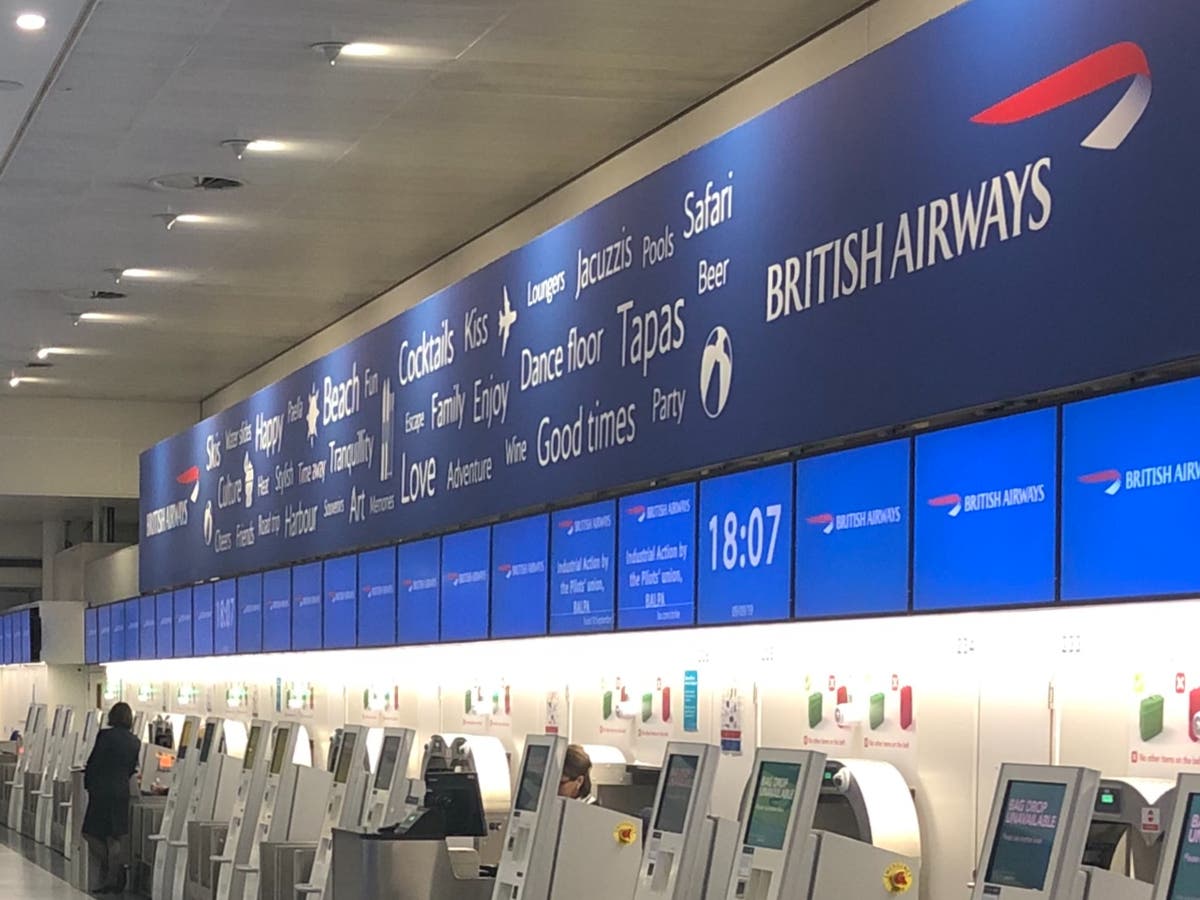‘BA Lite’ to take over British Airways short-haul flights at Gatwick
Staff are told continuing and changing travel restrictions have undermined consumer confidence

British Airways is to set up a separate low-cost subsidiary for European and domestic flights at Gatwick – allowing it to compete with budget airlines.
A “BA Lite” operation has been repeatedly considered by British Airways bosses seeking to make the Sussex airport profitable.
Since the start of the coronavirus pandemic, BA’s Gatwick short-haul network has been dormant, though some long-haul flights are continuing.
With the ending of the government’s furlough scheme next month, the new British Airways chief executive, Sean Doyle, has decided to press ahead with plans to cut costs and make BA more competitive with easyJet.
The airline has launched consultations with trades unions – telling them that change is essential if British Airways is to return to the Sussex airport at scale. BA has consistently criticised the UK government’s travel restrictions and subsequent undermining of passenger confidence.
The plan is to use the same staff, aircraft and slots as existed in March 2020, but as part of a new, separate airline.
Informally, some people have dubbed the venture “BA Lite”. A likely name is British Airways Express, mirroring Iberia Express – the lower-cost offshoot of BA’s Spanish sister airline.
The carrier is likely to begin operations at the start of the next summer season in late March 2022 – in time for the Easter school holidays.
For decades, BA has struggled with making its domestic and European operations from Gatwick profitable. After taking over British Caledonian and then Dan-Air, British Airways was left with an incoherent portfolio of routes from the Sussex airport. Many were to Mediterranean destinations, and some duplicated services from BA’s much bigger hub, Heathrow.
British Airways briefly established a “hub-and-spoke” operation at Gatwick North Terminal, calling it “The hub without the hubbub” and offering a connecting time as short as 26 minutes.
Separately, BA set up a low-cost subsidiary, Go, which was based at Stansted. It was sold to senior management backed by private equity in 2001, and a year later bought by easyJet – which merged Go into its operations.
After the terrorist attacks of 9/11 and the immediate downturn in air travel in late 2001, easyJet moved at scale into Gatwick – which is now the budget airline’s biggest base. Subsequently easyJet took over GB Airways, which previously operated services to destinations such as Spain, Morocco and Egypt on behalf of BA.
While British Airways had a busy long-haul leisure operation at Gatwick until the coronavirus pandemic, maintaining profitability on short-haul while competing head-to-head with easyJet was always a challenge.
Ryanair is increasing operations to and from Gatwick, including a link on the key route to Malaga in southern Spain, and Wizz Air is also known to be interested in establishing a foothold there.
According to the most recent traffic report from the air-traffic provider Eurocontrol, Gatwick has been harder hit by the decline in passengers than any other leading European airport.

 Tfoso
Tfoso 
































